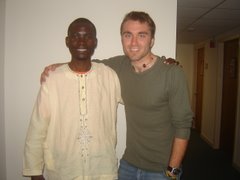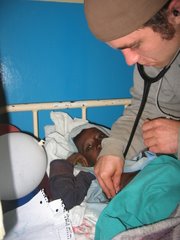Wallah! Where to begin? I’m in the airport awaiting my flight to Yemen, en route to Rwanda, with a layover in Ethiopia sandwiched in the middle. At last some still time, opportunity to jot down my closing thoughts on life in Syria. There’s much to share about what I’ve done, what I’ve learned, what I’ll miss, and what I’m looking forward to discovering on my next leg.
Thus far my entries have come from Damascus, because without the ability to communicate – or for that matter, recognize anything as familiar – I was confined to alleys and neighborhoods close to home. I worked hard to learn a bit of the language, though, and slowly my confidence grew. Wherever my travels lead, I always try to learn a variety of phrases – simple ones to survive (asking for directions, counting, et cetera), and longer, more complex ones to surprise native-speakers, not so much to bring attention to my intellect, but rather to make them smile. It can be difficult to make jokes in a language I don’t speak, but when I do it right, well, it’s the most wonderful experience and opens the doors to incredible friendships.
 I did not recognize how confident and comfortable I was until a couple of days into the trip when a friend commented so. And it struck me – damn, if a native-speaker thinks this, it must be true. That night I whipped out the Lonely Planet guide book and within a few hours decided to spend the next day in a town called Maalula, an hour’s drive Northeast of Damascus.
I did not recognize how confident and comfortable I was until a couple of days into the trip when a friend commented so. And it struck me – damn, if a native-speaker thinks this, it must be true. That night I whipped out the Lonely Planet guide book and within a few hours decided to spend the next day in a town called Maalula, an hour’s drive Northeast of Damascus.Getting there wasn’t easy. It took an hour and a half to walk the streets before finally finding the correct bus station – and a little
 more time to figure out how to use the public transportation. However, by 12 I was standing on the roadside watching the microbus pull away, leaving me and tiny Maalula in its dust. Blamo – middle of nowhere: beating sun bearing down on this dust bowl, and rocky niches, former homes, carved into cliffs. Also, back up 2000 years because Maalula is an Arameic-speaking village… Jesus language. In front of me was the church of and memorial to St. Takla – story as follows.
more time to figure out how to use the public transportation. However, by 12 I was standing on the roadside watching the microbus pull away, leaving me and tiny Maalula in its dust. Blamo – middle of nowhere: beating sun bearing down on this dust bowl, and rocky niches, former homes, carved into cliffs. Also, back up 2000 years because Maalula is an Arameic-speaking village… Jesus language. In front of me was the church of and memorial to St. Takla – story as follows.There’s a narrow canyon, more like a crack in the mountain, which cuts from one side of the village to the other. According to legend, St. Takla (student of the Apostle Paul) long ago traveled to Maalula as a missionary, bringing the teachings and good news of Jesus Christ. When the King, not himself a Christian, got wind of Takla’s story, he sent the army to end what he perceived to be nonsensical, provocative teachings. Trapped between the steady mountain and encroaching army, Takla fell to her knees and prayed for the rocks to part so she could escape safely. Jesus taught that we can move mountains if we have faith even as small as a mustard seed, and appropriately enough the mountain is said to have split before her. The canyon, which I walked through, is similar to Jordan’s Petra – an impressively narrow passageway.
This story all comes from a very kind, English-speaking nun who lives at the base of the mountain just outside the canyon’s entrance. Inside the church hang words of a prayer I enjoyed which read: “O Christ, our God, we all are pledged to serve thee with our whole being. Help us to continue to work for thee through our church without seeking praise… without seeking personal gain… without judging others… without a feeling that we have worked hard enough and now must allow ourselves rest. Give us strength to do what is right and help us to go on striving and to remember that activities are not the main thing in life. The most important thing is to have our hearts directed and attuned to Thee. Amen”. It seemed appropriate as my touristy-trip in Syria was ending and my internship in Rwanda soon on the verge of beginning.
 The following day I traveled to Quneitro, a UN-monitored town in the Golan Heights – formerly a population of 73,000. In 1973 the Israeli army bombed and bulldozed the city, and today only 4 families remain. The Syrian government keeps the rubble untouched to serve as a propaganda tool, reminding people to despise its enemy. The destruction was difficult and exhausting to witness because it doesn’t seem to have an end. The first couple of buildings were gut-wrenching and stirred awe – not pleasant, but
The following day I traveled to Quneitro, a UN-monitored town in the Golan Heights – formerly a population of 73,000. In 1973 the Israeli army bombed and bulldozed the city, and today only 4 families remain. The Syrian government keeps the rubble untouched to serve as a propaganda tool, reminding people to despise its enemy. The destruction was difficult and exhausting to witness because it doesn’t seem to have an end. The first couple of buildings were gut-wrenching and stirred awe – not pleasant, but  something that could at least be felt. But after that, everything was numbing. Every house crumpled, every building riddled with bullets. Churches, mosques, hospitals desecrated. (At left is a picture of the road to Israel, impassable due to remnant landmines)
something that could at least be felt. But after that, everything was numbing. Every house crumpled, every building riddled with bullets. Churches, mosques, hospitals desecrated. (At left is a picture of the road to Israel, impassable due to remnant landmines)There was also a Japanese tourist with me, a girl about my age. We walked through the ghost-town together, sharing our shock and horror. And although in this instance we were both on the same side of the window, looking through a shattered pane at humanity’s capability of destroying itself, I couldn’t help but think back to my dad’s generation, and Hiroshima. Historically our countries have looked not in the same direction but at each other through this busted window – and historically I was the Israeli army. This made seeing Quneitro all the more difficult.
The day after Lizz completed her final exam, we traveled four hours by bus north to Aleppo. Although it’s a densely populated area, rich in religious and political history, I was surprised how harmonious people of the three monotheistic religions lived.
 In addition to walking around the Citadel and crawling through underground caves that lead to the safe haven, we visited 5th c. AD and 9th c. BC archeological excavation sites. If you’re interested, google St. Simeon citadel, The temple of Ishtar, and the Dead Cities. As for Aleppo itself, it’s a densely populated area, rich in religious and political history.
In addition to walking around the Citadel and crawling through underground caves that lead to the safe haven, we visited 5th c. AD and 9th c. BC archeological excavation sites. If you’re interested, google St. Simeon citadel, The temple of Ishtar, and the Dead Cities. As for Aleppo itself, it’s a densely populated area, rich in religious and political history.On Christmas eve, Lizz asked me to read her a story that means a lot, the gospel of Luke. Although by virtue of being raised American she knew parts of the Christmas story, it had been years since she’d actually read a bible. Like a good poem or a bit of dark chocolate, it was fun to share together.
Later that night a friend and I went to a midnight service inside the walls of the Old City. We were in the middle of a ritualistic and somewhat boring catholic mass when a rolling thunder of drums picked up next door – and it kept escalating to the point that the priest’s words were completely droned out. Neither of us being catholic, and thus immune from pew-binding guilt, we abruptly left and went to join the lively celebration. Trumpets chipped in their part as well, and although even my tone-deaf ears could tell they were out of tune, hearing familiar carols in a foreign land caused me to realize that Christmas is not just an American holiday, but a celebration of the birth of the savior to all people.
 The next morning was bittersweet. We made chocolate chip pancakes and opened presents, but then soon left for the airport. I cried, as I always do when I have to say goodbye to my sister. I’ll miss her and the two weeks we spent together in Damascus – the street food and the people, but I’m excited to discover Rwanda, its people and its health care system.
The next morning was bittersweet. We made chocolate chip pancakes and opened presents, but then soon left for the airport. I cried, as I always do when I have to say goodbye to my sister. I’ll miss her and the two weeks we spent together in Damascus – the street food and the people, but I’m excited to discover Rwanda, its people and its health care system.My overall impression of Syria was resoundingly positive. To be fair, I should note that men are harassed much less than women – and if ill was spoken, I could not understand the language to interpret it as so. But throughout the country, both Muslims and Christians were welcoming and helpful. They opened their homes and offered their services, knowing I had nothing to offer but friendship in return. My wallet is now full of addresses and phone numbers written on scrap pieces of paper and handed to me on public transportation, should I ever need help. I respect Islam more than before, and admire Muslim discipline and reverence toward God. It should go without saying, but they are not all terrorists. When talking with one Muslim man about Osama bin Laden, Islam, and his thoughts about the US, he said “bin Laden is a Muslim and that’s why I like him, not because he’s a terrorist. I do not agree with the things your government does, but that does not mean its people are bad. I appreciate Muslims because I’m Muslim, Arabs because I’m Arab, and Americans because I’m human”. Certainly most allegiances lay in the Muslim Arab world (and in that order), but peace and reconciliation toward Westerners among the common people was much more prevalent than I expected it to be.
Now I’m off from Syria to Yemen to Ethiopia to Kenya and finally (hopefully) to Rwanda, where I’ll make my home for the next ten weeks.











